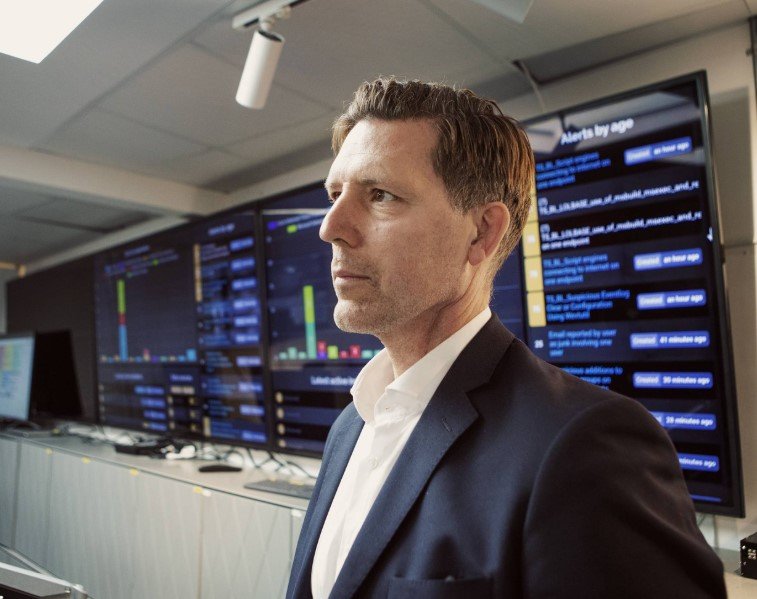Sweden isn’t just bracing its citizens for potential emergencies anymore — it’s asking its companies to gear up too. The Nordic nation has unveiled a new preparedness plan aimed squarely at the private sector, signaling a belief that in modern conflicts, businesses can be as much a target as the military.
A Nation That Plans for the Worst
Seven years ago, Sweden grabbed global attention when every household received a bright red-and-yellow leaflet titled “If Crisis or War Comes.” The Swedish Civil Contingencies Agency, or MSB, didn’t rely on email or social media for distribution. It went old-school — physical mail. The idea was simple but chillingly practical: in a real crisis, the internet might fail, so information had to reach people the traditional way.
That 2018 document, a revival of a Cold War-era manual, didn’t mince words. It told citizens how to store water, what to do if electricity failed, and — in stark terms — reminded them that “if Sweden is attacked, we will never surrender.” Critics at the time said it bordered on paranoia. But few are laughing now.
Russia’s full-scale invasion of Ukraine in 2022 jolted Europe’s sense of security. Suddenly, the idea of civil and corporate preparedness didn’t seem quaint or alarmist. It seemed wise.

Business as the New Frontline
This month, Sweden went a step further. The MSB released its first-ever preparedness guide for businesses, urging companies large and small to plan for disruptions — from cyberattacks to disinformation campaigns to supply chain breakdowns.
The message is clear: resilience isn’t just a government responsibility anymore. Every company, from the smallest IT consultancy to Volvo or Ericsson, plays a role in keeping the nation functioning.
One Swedish official, speaking to local media, put it bluntly: “If the private sector stops, Sweden stops.”
That may sound dramatic, but it’s true. Over 70 percent of Sweden’s critical infrastructure is privately owned — energy grids, logistics networks, telecommunications systems. If hackers or hostile states hit those nodes, the entire economy could grind to a halt.
So what’s in the new business leaflet? It covers everything from stockpiling essentials to identifying alternative suppliers and ensuring employees can keep working if communication lines go down.
-
Companies are urged to map dependencies — where their products come from, how data flows, and what would happen if one supplier fails.
-
They’re also told to coordinate with local municipalities and the Swedish Armed Forces to ensure continuity.
-
And, interestingly, they’re encouraged to think about information warfare — how to spot fake news that could disrupt operations or erode trust.
Lessons from Ukraine and Beyond
Sweden’s approach reflects lessons drawn from the Ukraine war. When Russian missiles struck power stations, it wasn’t just soldiers who responded — IT workers, logistics managers, and private-sector engineers became frontline defenders.
Even outside the battlefield, hybrid attacks — a mix of cyber sabotage, propaganda, and trade disruption — have proven devastating. Finland, Estonia, and Lithuania have all reported spikes in cyber incidents tied to foreign actors in the past three years.
A 2024 EU Cybersecurity Agency report found that attacks on critical infrastructure jumped 35 percent year-on-year, with energy, healthcare, and logistics being the hardest hit. Sweden’s new plan is a direct response to that trend.
Yet what sets Stockholm apart isn’t just its foresight — it’s the cultural acceptance of preparedness. Unlike many countries where talk of “war readiness” feels taboo, Swedes tend to see it as civic duty. Preparedness drills are part of schools, local councils, and now, boardrooms.
From Leaflets to Leadership
The MSB’s business preparedness guide marks an evolution in Sweden’s security thinking — from citizens to corporations, from awareness to accountability.
The agency plans to run workshops with chambers of commerce, trade groups, and regional business councils through early 2026. It’s also setting up an online portal with templates and checklists, though the printed materials will remain a key part of distribution.
That decision again speaks volumes. Officials still believe digital systems could be compromised during a crisis, making tangible resources — printed instructions, physical maps — vital.
And it’s not just about cyber threats. The guidance also covers natural disasters, supply chain shocks, and economic coercion — such as trade restrictions or targeted sanctions.
For a country deeply integrated into global markets, those risks are real.
A Model for Europe?
Some European governments are watching Sweden’s playbook closely. Germany and the Netherlands have quietly revived Cold War-style public awareness programs, though few have gone as far as Sweden’s private-sector engagement.
In Brussels, EU policymakers are discussing whether corporate preparedness should be part of broader “resilience reporting” — similar to how firms already disclose environmental or cybersecurity risks.
There’s even talk of coordination across Nordic and Baltic nations. Finland, newly a NATO member, already maintains a “whole-of-society defense” concept, where public and private institutions collaborate in crises. Sweden’s move effectively plugs its business community into that same ecosystem.
Still, some Swedish executives have expressed concern. A few smaller firms worry about compliance costs and logistical burdens. “We’re not a defense company,” one SME owner in Gothenburg said. “It’s hard to think about stockpiling or alternate suppliers when margins are already tight.”
Yet others see opportunity. Preparedness, after all, builds credibility. Investors increasingly assess resilience as part of corporate risk scoring. For Sweden’s globally exposed industries — shipping, fintech, green tech — that could be a selling point.
The Broader Message: Stability Is Everyone’s Business
The timing of this move is no coincidence. Sweden formally joined NATO earlier this year, marking a seismic shift in its defense policy after decades of neutrality. It now shares intelligence and defense planning with allies — but its own readiness remains its first line of protection.
This new leaflet to businesses sends a quiet but powerful message: economic resilience is national defense. A cyberattack on a logistics firm can be as crippling as a missile strike on a base.
It’s a reminder that modern warfare doesn’t always come with sirens and uniforms. Sometimes it starts with a fake invoice, a data breach, or a supply delay.
And while others debate how to respond, Sweden — as usual — is already printing instructions.








